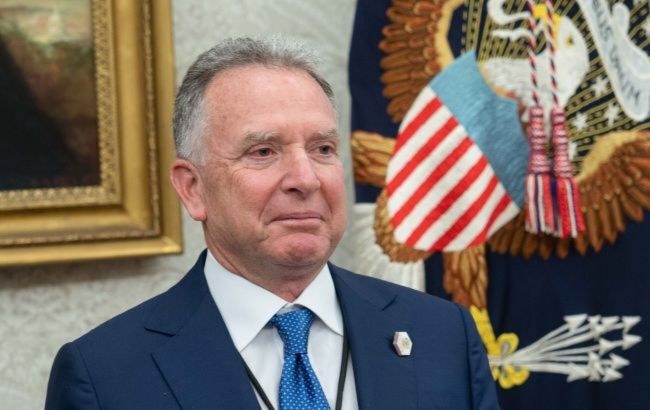Next round of US-Iran talks to take place outside Oman - CNN
 Photo: US President Donald Trump’s Special Envoy to the Middle East, Steve Witkoff (Getty Images)
Photo: US President Donald Trump’s Special Envoy to the Middle East, Steve Witkoff (Getty Images)
The United States and Iran are changing the location for discussions on the nuclear deal. Oman will remain involved in the process as a mediator, according to CNN.
An anonymous source familiar with the plans told CNN that the second round of talks is scheduled to take place in Rome on Saturday, April 19. Previously, it had been reported that the negotiations would once again be held in Oman.
This change means that Donald Trump’s special envoy to the Middle East, Steve Witkoff, will first travel to Paris to hold talks on Ukraine with US Secretary of State Marco Rubio, before heading to Rome to discuss a new nuclear deal with Iran.
Despite Rome being the new location, Oman will continue to serve as a mediator, the CNN source added.
Oman's foreign minister acted as a go-between last weekend, facilitating indirect communication between the two sides. At the end of those talks, Witkoff reportedly spoke directly with Iran’s Foreign Minister Abbas Araghchi. A similar format is expected in the upcoming discussions, according to the source.
Iran is likely awaiting clarification from Witkoff following a shift in the US envoy's stance earlier this week. In an interview with Fox News, Witkoff said that Iran does not need to enrich uranium beyond 3.67% to fulfill its civilian nuclear program, implying that the US might accept Iran keeping a limited nuclear program.
However, on Tuesday, April 15, Witkoff adopted a more hardline position, posting on X (formerly Twitter) that “Iran must stop and eliminate its nuclear enrichment and weaponization program.”
Talks on new nuclear deal with Iran
Upon beginning his second presidential term, Donald Trump announced plans to negotiate a new nuclear agreement with Iran. This comes after he withdrew from the previous deal and reimposed sanctions during his first term from 2017 to 2021.
In early March, Trump sent a letter to Iran’s Supreme Leader Ayatollah Ali Khamenei offering to reach a new agreement. He warned that failure to do so could result in large-scale US strikes on Iranian territory, including nuclear-related sites.
Khamenei initially refused, declaring he would not negotiate with a “bullying government,” and ordered Iran’s missile forces to full combat readiness.
However, under mounting pressure, the Iranian leader shifted his stance and agreed to enter talks with the US on April 11.
For a deeper look at the potential for military confrontation between the US and Iran, see the analytical report.

